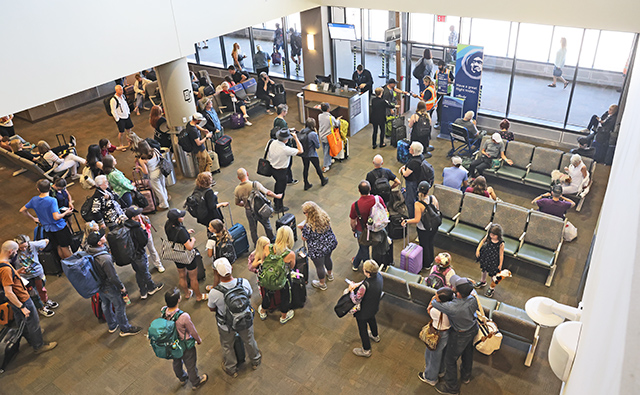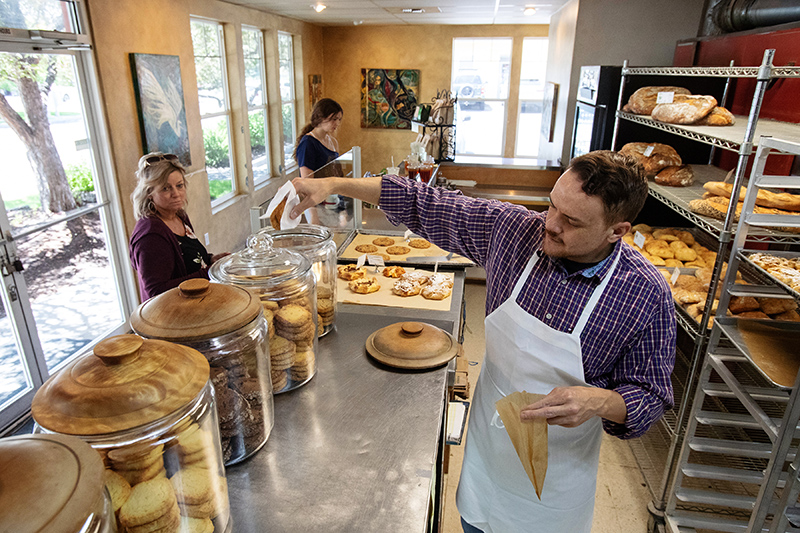Panhandlers not always homeless
Published 4:00 am Thursday, January 3, 2008
I think the world is coming to an end.
Berkeley, Calif., has passed an ordinance demanding the homeless clean up their act or get out of town. Who would’ve thunk?
Known nationally as “Berserk-ley” for its radical, over-the-top liberal agendas, the city has some of the most progressive social programs in the country. Everything from immediate emergency housing and food assistance, to a voucher program available for public purchase through local retailers, ensuring “beggars” can only buy food and necessities with your donation. One would think, with the focused effort by officials and the massive army of volunteers and nonprofits, Berkeley wouldn’t have a homeless problem. In fact, the opposite is true. A recent study has shown 40 percent of the homeless in Alameda County (which includes the city of Oakland) have migrated to Berkeley, continuing their lifestyle on the readily available public nickel.
The problems faced by the city are not due to a lack of compassion. The only failure in their system has been becoming overly tolerant of individuals who refuse to accept social responsibility. Programs developed to help those who truly and desperately need it perpetuate the problem — thanks to an entire subculture that “plays” the system and preys on public sympathy. Berkeley’s courageous efforts have morphed from providing public assistance to tolerating public subsistence.
The discussion in The Bulletin on “beggars making a nuisance” has morphed as well. The concerns of “professional and aggressive” panhandling noted in Don Anderson’s original letter transformed into accusations of cruel and heatless attacks on the homeless. In the letters that followed, we overloaded ourselves with guilt, seemingly taking responsibility for beggars on the corner. With innocent ignorance, we attempted to justify the act of panhandling with the economic failures in our society, “forcing” people to beg for subsistence.
While we want to believe that street begging is due to our inability to care for the less fortunate, the Department of Justice, in a publication by COPS (Community Oriented Policing Services), sheds a bit of light and gives public safety officers this profile of the “typical” panhandler:
“Contrary to common belief, panhandlers and homeless people are not necessarily one and the same. Many studies have found that only a small percentage of homeless people panhandle and only a small percentage of panhandlers are homeless.
“Most studies conclude that panhandlers make rational economic choices — Panhandlers develop their ‘sales pitches,’ and sometimes compete with one another for the rights to a particular pitch. Their sales pitches are usually, though not always, fraudulent. Many panhandlers make it a habit to always be polite and appreciative, even when they are refused. Panhandlers usually give some consideration to their physical appearance: they must balance looking needy against looking too offensive or threatening.
“Most panhandlers are not interested in regular employment, particularly not minimum-wage labor, which many believe would scarcely be more profitable than panhandling.”
The publication continues: “Panhandling is more common in communities that provide a high level of social services to the needy, because the same citizens who support social services are also likely to give money directly to panhandlers; panhandlers are drawn to communities where both free social services and generous passersby are plentiful.”
The city of Bend will be faced with some tough decisions in the near future. Roseburg and Medford have passed ordinances that restrict begging and define “aggressive” panhandling; Salem is in the process of doing the same. The new laws will undoubtedly be challenged in court, as “begging” has been declared to be constitutionally protected speech under the First Amendment — the decision being made in a class action suit filed in New York by two kids from the upscale suburbs who moved to the East Village and supported themselves by panhandling. (Loper vs. New York City Police Department, 1993)
Before labeling me as a heartless, inhumane soul, please know my opinion comes through past experience of living on the street. As part of the counter-culture in the late ’60s and early ’70s, I traveled throughout the West for nearly two years with nothing more than the clothes on my back, spending more nights beneath overpasses and on park benches than I care to remember. While the economics of the nation have changed since then, the attitude of those who “check out” of society hasn’t. Bums, hobos, drifters, street people, and vagrants — it’s nothing new.
As a community, we need to embrace and support those who struggle to provide for themselves and their families. But we also need to educate ourselves, knowing that the guy on the side of the road with three well fed dogs and a cardboard sign is most likely not one of them. Ignoring it will only perpetuate the panhandling problem — a silent acceptance of a growing subculture in Central Oregon. In doing so, we’ll be faced with the same issues plaguing Berkeley today.
Bend, Ore. — who would’ve thunk?






